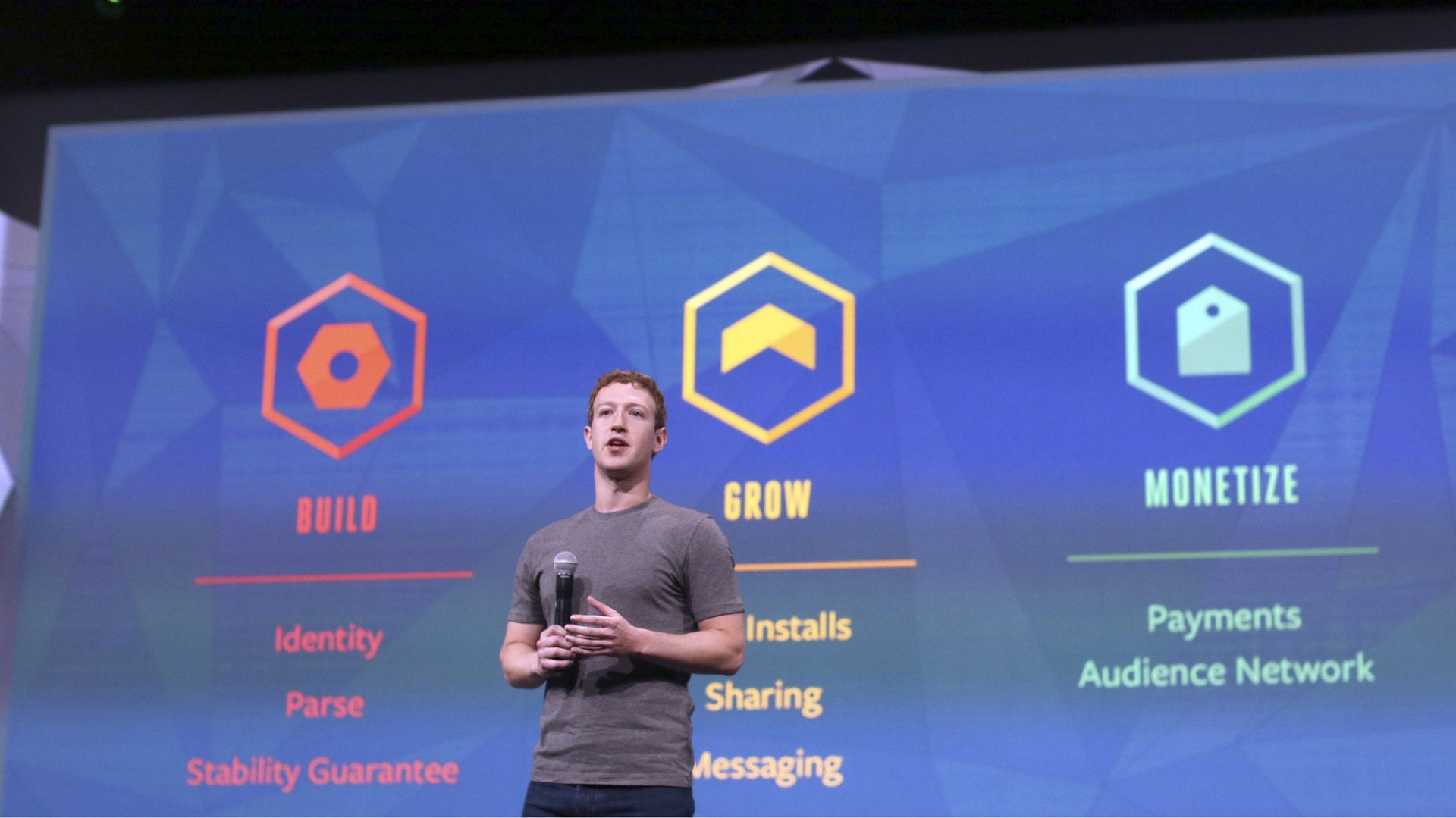Facebook just made its boldest moves yet to become the Google of mobile apps
Facebook announced a shedload of new features today at F8, a conference for its developers. The new features include a “Like” button for mobile apps, the ability for apps to “deep-link” to things inside other apps—cross-functionality that today usually requires people to exit one app and navigate through another—and the ability to log in to third-party apps “anonymously,” which in reality is the ability only to decide what specific information you share with other apps (thanks a lot, Facebook). As expected, the company also announced a mobile ad network.


Facebook announced a shedload of new features today at F8, a conference for its developers. The new features include a “Like” button for mobile apps, the ability for apps to “deep-link” to things inside other apps—cross-functionality that today usually requires people to exit one app and navigate through another—and the ability to log in to third-party apps “anonymously,” which in reality is the ability only to decide what specific information you share with other apps (thanks a lot, Facebook). As expected, the company also announced a mobile ad network.
All of this should scare the pants off Google. It makes the Android operating system for smartphones, but remains only one aspect of the mobile internet. Facebook’s moves today point to its ambition to become the glue that holds the mobile internet together the same way Google is the glue that holds the web together. Google achieved dominance on the pre-mobile internet world wide web with a similar strategy. Not only did it bring people to the websites via search, it also created a massive data-gathering machine that tracks people across the web and runs AdSense, the web’s biggest ad network. The web was already a place where anybody could link to anybody else, which forms the foundation of PageRank, Google’s search algorithm that at its most basic level decides how credible a website is by the quantity and quality of links from other websites.
Something similar doesn’t really exist in mobile. Though users opening a YouTube video in the Chrome mobile browser are prompted to complete the action in the YouTube app, the same thing does not apply when they go to Airbnb, for example. Google’s only efforts in deep-linking so far have more to do with advertising than simple connections. Facebook however has taken a leaf out of Google’s book and released an open-source platform for app-makers to link to each other within their apps, with early adopters including companies like Dropbox and Spotify.
For Facebook, the strategy is simple. It has already shown its vision for mobile by starting the process of dissembling its monolithic app into a series of smaller ones, all the better to encourage usage and ensure user loyalty by making their lives easier. Now it is extending that strategy to the rest of mobile as well, by making life easier for the people who build apps. Moreover, allowing other apps to use its functions gives Facebook the ability—through its “Like” button, its ad network, its login functions—to keep track of what its users are doing outside of its own apps. That is a valuable thing in an age where data is the currency that drives the internet.
It is arguable that with Applinks (Facebook’s platform for deep-linking), it could wield more power than Google, which makes mobile operating systems and apps but doesn’t have insight into what its users are doing when they’re in other apps.
As Facebook CEO Mark Zuckerberg tells Wired:
[Y]ou’re going to see dozens of other apps that developers build that each use the Facebook login, Facebook to share, the mobile “like” button, push notification from Parse, app installs through Facebook, and Facebook monetization tools in order to turn their apps into businesses. It’s going to be one great community where people will have the ability to share whatever content they want with whoever they want.
“One great community” is another way of saying “an internet with Facebook as its plumbing,” much as the open (that is, searchable) web remains Google’s playground. In that Wired piece, Steven Levy writes, “Zuckerberg explained his developer philosophy, his belief that all apps should be social, and his vision of Facebook as the leader in knowledge — which as he described it, sounded a lot like search.” [Emphasis added.]
Analysts weighing in on Facebook’s announcements today are already throwing around the word “maturity.” With maturity comes clarity of purpose. What that means is that Facebook is no longer willing to play second fiddle to the granddaddy of the internet.